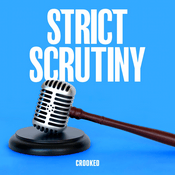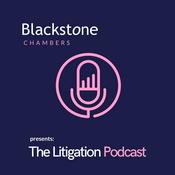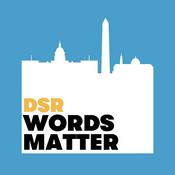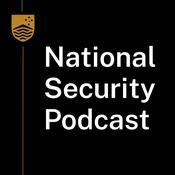159 episodes
- The appellant, Aphria Inc. (“tenant”), entered into a ten-year lease for commercial office premises with the respondent landlords and successors (collectively, “landlord”). The tenant served a notice of repudiation on the landlord and vacated the premises. The landlord did not accept the tenant’s repudiation of the lease. Ultimately, the landlord sued the tenant for rents owing.The motion judge in the Ontario Superior Court of Justice granted the landlord summary judgment for the rent owing plus interest. The motion judge declined to grant the landlord judgment for future rent. The motion judge dismissed the tenant’s cross-motion for summary judgment for a declaration that if rent was owing, the amount was capped at rent owing for two years from the date of default pursuant to the lease. The Ontario Court of Appeal unanimously dismissed the tenant’s appeal. It held that the motion judge did not err by refusing to depart from Highway Properties Ltd. v. Kelly, Douglas and Co. Ltd., [1971] S.C.R. 562, in order to recognize a duty to mitigate on commercial landlords who reject a repudiation of a lease by the tenant. The court also held that the motion judge did not err in his interpretation of the lease.
Argued Date
2026-02-18
Keywords
Contracts — Commercial leases — Repudiation — Duty to mitigate — Stare decisis — Interpretation — Are commercial landlords exempt from the duty to mitigate damages? — If the common law is able to grow and adapt to changing conditions, when and how should lower courts depart from Supreme Court of Canada decisions on common law? — Should courts apply the plain meaning of the words chosen by the parties in interpreting a contract, in the absence of any factual matrix evidence?
Notes
(Ontario) (Civil) (By Leave)
Language
Floor Audio
Disclaimers
This podcast is created as a public service to promote public access and awareness of the workings of Canada's highest court. It is not affiliated with or endorsed by the Court. The original version of this hearing may be found on the Supreme Court of Canada's website. The above case summary was prepared by the Office of the Registrar of the Supreme Court of Canada (Law Branch). - Ms. Korduner was a motor vehicle driver involved in a two-vehicle accident. A responding police officer questioned her at the scene for approximately three minutes, during which she stated that she should not have been driving because she was drunk. Ms. Korduner was arrested for impaired operation of a motor vehicle. She refused to provide a breath sample into an approved screening device and was charged for refusing to provide a breath sample. In voir dire proceedings to determine the admissibility of Ms. Korduner’s statements, the trial judge held that Ms. Korduner’s statements were compelled by the Traffic Safety Act, R.S.A. 2000, c. T-6, and were inadmissible pursuant to the use immunity principle; reliance on s. 320.31(9) of the Criminal Code, R.S.C. 1985, c. C-46, as a basis for admitting the statements would breach Ms. Korduner’s rights under s. 7 of the Charter of Rights and Freedoms; and Crown counsel failed to prove the breach was justified pursuant to s. 1 of the Charter. The charges were dismissed. The Court of King’s Bench of Alberta dismissed a summary conviction appeal. The majority of the Court of Appeal for Alberta allowed an appeal and ordered a new trial.
Argued Date
2026-02-17
Keywords
Charter of Rights and Freedoms — Principles of fundamental justice — Self-incrimination — Criminal law — Evidence — Use immunity — Remedies — Police officer responding to motor vehicle accident questioning driver involved in accident — Statements by driver causing officer to demand breath samples in order to administer approved roadside screening device — Trial judge declaring statements to officer compelled by Traffic Safety Act — Section 320.31(9) of Criminal Code setting out that a statement to a peace officer including statement compelled under provincial Act admissible in evidence for purpose of justifying demand to provide breath sample — Whether s. 320.31(9) infringes s. 7 of Charter — If so, whether limit reasonable and demonstrably justified pursuant to s. 1 of Charter — If not, appropriate remedy — Traffic Safety Act, R.S.A. 2000, c. T-6, ss. 69(1), 71(1) — Criminal Code, R.S.C. 1985, c. C-46, s. 320.21(9).
Notes
(Alberta) (Criminal) (By Leave)
Language
Floor Audio
Disclaimers
This podcast is created as a public service to promote public access and awareness of the workings of Canada's highest court. It is not affiliated with or endorsed by the Court. The original version of this hearing may be found on the Supreme Court of Canada's website. The above case summary was prepared by the Office of the Registrar of the Supreme Court of Canada (Law Branch). Québec Major Junior Hockey League, now doing business as Quebec Maritimes Junior Hockey League Inc., et al. v. Lukas Walter, et al. (41532)
17/2/2026 | 2h 36 mins.The respondents in these applications for leave to appeal, Mr. Walter and Mr. Gobeil, were recognized as representative plaintiffs for the class covered by a class action brought against the applicants/interveners in these applications for leave to appeal, that is, the Québec Major Junior Hockey League, now doing business as the Quebec Maritimes Junior Hockey League Inc., and the impleaded hockey teams that are members of the League. In the class action, the respondents submitted that the applicants/interveners were refusing to recognize major junior hockey players as having employee status, with the result that the players had no access to the protection provided by legislation governing working conditions. Two other similar class actions were authorized, one in Ontario against the Ontario Hockey League and one in Alberta against the Western Hockey League. In total, 4,286 major junior hockey players, including 1,702 in Quebec, are covered by the class actions. On March 31, 2020, the parties to the three class actions reached a settlement agreement. The agreement was submitted to the superior courts in each of the three provinces through a joint hearing. The superior courts rejected the agreement in October 2020 solely on the basis that the scope of the release provided for was overly broad. In June 2023, after the releases were renegotiated, all of the parties, including the respondents, signed an amendment to the initial settlement agreement in order to replace the release provisions. However, it appears that, shortly after the signing, the respondents disavowed their signature and announced that they would oppose the submission of the amended agreement for judicial approval. Despite the instructions given by the respondents, Mr. Savonitto, a member of one of the firms that are applicants/interveners in these applications for leave to appeal, nevertheless submitted the amended settlement agreement to the Superior Court judge for her approval. In response, the respondents filed notices with the Superior Court formally revoking the mandate of the law firms that are applicants/interveners in this case and announced that they were retaining the services of other lawyers. The applicant/intervener law firms opposed the notices of revocation and asked the Superior Court to determine the conditions for approving the amended settlement agreement. The Superior Court recorded the revocation of the mandate of the applicants/interveners as far as the respondents were concerned, but it confirmed that the applicants/interveners still continued to represent the members of the class covered by the class action. The Court of Appeal allowed the appeal and set aside the Superior Court’s decision.
Argued Date
2026-02-16
Keywords
Civil procedure – Class action – Lawyer client relationship in context of class action –Lawyer’s ethical obligations to client in context of class action – Protection for class members – Revocation of legal mandates given to firms by class representatives – Whether Court of Appeal erred in law in ordering that agreement to settle authorized class action be submitted to court by applicants/defendants for approval, thereby placing their lawyers in conflict of interest and in situation that compromised their ethical obligations – Whether Court of Appeal erred in ruling that lawyer who acts for plaintiffs in class action: (i) has lawyer client relationship only with class representative; (ii) does not represent class members; and (iii) has no duty to act in best interests of class where those interests conflict with instructions of class representative – Whether Court of Appeal erred in breaching its own duty to protect interests of absent members, especially where those interests conflict with interests of class representatives – Whether Court of Appeal erred in law in holding that art. 2633 of Civil Code of Québec and art. 528 of Code of Civil Procedure concerning homologation of transaction under ordinary law apply to process for approval of transaction in class action, and thus in asking defendants to submit amended settlement agreement for approval if Mr. Gobeil and Mr. Walter refused to do so – Code of Civil Procedure, CQLR, c. C 25.01, arts. 87, 528, 571, 575, 586, 589 and 590 – Code of Professional Conduct of Lawyers, CQLR, c. B 1, r. 3.1, ss. 20, 23, 71, 72 and 120.
Notes
(Quebec) (Civil) (By Leave)
Language
Floor Audio
Disclaimers
This podcast is created as a public service to promote public access and awareness of the workings of Canada's highest court. It is not affiliated with or endorsed by the Court. The original version of this hearing may be found on the Supreme Court of Canada's website. The above case summary was prepared by the Office of the Registrar of the Supreme Court of Canada (Law Branch).Nathalie Sinclair-Desgagné v. Directeur général des élections du Canada, Directeur du scrutin de la circonscription de Terrebonne, et al. (42076)
16/2/2026 | 1h 59 mins.(Confidentiality order)Following the Canadian general election held on April 28, 2025, and the subsequent judicial recount, the respondent Tatiana Auguste became a member of Parliament for the electoral district of Terrebonne. Only one vote in her favour separated her from her closest rival, the appellant, Nathalie Sinclair-Desgagné. One voter then notified the media that her special ballot, mailed within the prescribed time, had been returned to her after the polling day, marked [translation] “Moved or unknown – return to sender”. In fact, there was an error in the postal code that the returning officer placed on the prepaid envelope sent to the voter in that the last three characters of the postal code were for somewhere other than the polling station. But that voter maintained that she voted for Ms. Sinclair-Desgagné.The Superior Court found that there was no irregularity within the meaning of s. 524(1)(b) of the Canada Elections Act. It therefore dismissed the application to contest the election filed by Ms. Sinclair-Desgagné.
Argued Date
2026-02-13
Keywords
Elections — Application to contest election — Irregularity — Allegations of irregularities that affected result of election made by candidate defeated by single vote in federal election — Whether trial judge erred in interpretation of notion of irregularity — Whether trial judge erred in determination of consequences of irregularity on integrity of electoral system — Whether trial judge erred in imposing burden much greater than that under Canada Elections Act on voter — Canada Elections Act, S.C. 2000, c. 9, ss. 524(1)b), 531(2).
Notes
(Quebec) (Civil) (As of Right) (Publication ban in case) (Sealing order) (Certain information not available to the public)
Language
Floor Audio
Disclaimers
This podcast is created as a public service to promote public access and awareness of the workings of Canada's highest court. It is not affiliated with or endorsed by the Court. The original version of this hearing may be found on the Supreme Court of Canada's website. The above case summary was prepared by the Office of the Registrar of the Supreme Court of Canada (Law Branch).Maxime Bergeron v. Assemblée parlementaire des étudiants du Québec inc., et al. (41566)
13/2/2026 | 2h 18 mins.Maxime Bergeron was expelled from a mock parliament organized by one of the respondents, the Assemblée parlementaire des étudiants du Québec inc. Some participants said that they were afraid of him because of his [TRANSLATION] “disruptive behaviour”. His father, Jean Bergeron, a lawyer, quickly became involved in the situation, seeking to have the expulsion decision revoked and to obtain reparation for the damage sustained by his son. The respondents filed a motion to have J. Bergeron declared disqualified.The Superior Court found that exceptional circumstances warranted declaring J. Bergeron disqualified. A reasonably informed member of the public knowing the facts of the case would be satisfied that he did not have the distance he was required to have. The Court of Appeal found that there was no reviewable error. Public confidence in the proper administration of justice could be compromised if M. Bergeron’s father were authorized to continue representing him in the particular circumstances of this case.
Argued Date
2026-02-12
Keywords
Civil procedure — Motion to have lawyer declared disqualified — Whether principles applicable with regard to conflict of interest since MacDonald Estate apply by analogy in context of disqualification of lawyer for not having enough distance — Criteria and factors to be weighed by trial judge considering application for disqualification of lawyer for not having enough distance to balance lawyer’s obligations as officer of court — Code of Civil Procedure, CQLR, c. C 25.01, art. 193.
Notes
(Quebec) (Civil) (By Leave)
Language
Floor Audio
Disclaimers
This podcast is created as a public service to promote public access and awareness of the workings of Canada's highest court. It is not affiliated with or endorsed by the Court. The original version of this hearing may be found on the Supreme Court of Canada's website. The above case summary was prepared by the Office of the Registrar of the Supreme Court of Canada (Law Branch).
More Government podcasts
Trending Government podcasts
About Supreme Court of Canada Hearings (Floor Audio)
Unedited floor audio of oral arguments at the Supreme Court of Canada, i.e., in both English and French. Created as a public service to promote public access and awareness of the workings of Canada's highest court. Not affiliated with or endorsed by the Court. Original archived webcasts can be found on the Court's website at scc-csc.ca. Feedback welcome: podcast at scchearings dot ca.
Podcast websiteListen to Supreme Court of Canada Hearings (Floor Audio), The Trade Guys and many other podcasts from around the world with the radio.net app
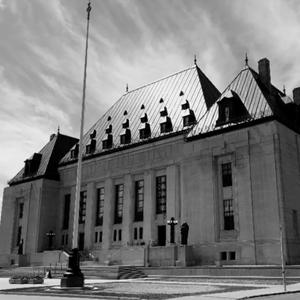
Get the free radio.net app
- Stations and podcasts to bookmark
- Stream via Wi-Fi or Bluetooth
- Supports Carplay & Android Auto
- Many other app features
Get the free radio.net app
- Stations and podcasts to bookmark
- Stream via Wi-Fi or Bluetooth
- Supports Carplay & Android Auto
- Many other app features


Supreme Court of Canada Hearings (Floor Audio)
Scan code,
download the app,
start listening.
download the app,
start listening.






